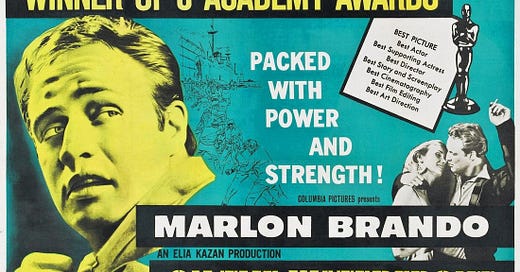The priest leans over the body of a dead man, who has been crushed to death on the docks — a murder made to look, barely, like an accident. For Kayo Dugan was about to testify against the corrupt union boss, Johnny Friendly, and his henchmen, and their protection racket. “Some people think the Crucifixion only took place on Calvary,” says Father Barry…
Keep reading with a 7-day free trial
Subscribe to Word & Song by Anthony Esolen to keep reading this post and get 7 days of free access to the full post archives.



